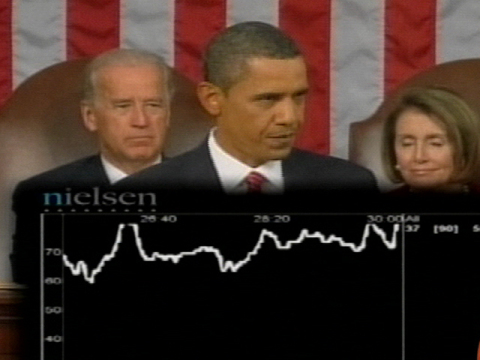Focus Group Tested Speech
 Tuesday, July 26, 2011 at 01:48PM
Tuesday, July 26, 2011 at 01:48PM 
The Beltway crowd is at it again. Obama's speech on the debt ceiling was packed with focus group tested positive speech. Words like "balance" and "compromise" apparently tested quite well (Obama kept repeating them), while pejoratives like "extreme" and "Tea-Party" tested poorly and produce a negative reaction when applied to one's political opponents, as Obama did.
The Reformed have their focus tested speech as well. "Covenant" is a good Reformed word. "Arminian" is a negative term. When we wish to say something positive in our circles, we call it "covenantal" or tie it to "covenant." When we wish to mark something off as problematic, we call it "Arminian," for obvious reasons, of course.
Apparently, the pre-trib rapture people have their focus tested speech as well. One pre-trib rapture blog has a list of theologians/pastors and ranks them as to whether they are a "good apple" or a "bad apple" (check this out, it really is a hoot--Good and Bad Apples on the Bible Prophecy Blog).
Here's the "Bible Prophecy blog" description of that "bad apple," R. C. Sproul.
"A brilliant scholar and founder of Ligonier Ministries and ligonier.org, he is probably best known in prophecy circles for his support of preterism. He is a `partial preterist' which claims the events of most of the book of Revelation occurred during the destruction of Jerusalem in 70 A.D., yet there will be a future bodily return of Jesus Christ. A difficult, confusing model of Bible prophecy, few scholars accept this form of eschatology which has roots in liberal covenant and reformation theology. He, along with other scholars, authored the Reformation Study Bible. He is a professor, pastor, teacher, conference speaker and author. He writes against the pre-tribulation rapture position."
When I think of R. C. "brilliant" certainly comes to mind, but "liberal"? Apparently, "liberal," "covenant" and even "Reformational" are negative focus tested words in this circle.
We can have some fun with this. How about some examples of "focus tested speech" found in the Christian world? Leave them in the comments section below.


Reader Comments (15)
As for the Reformed, it depends which guys you ask. "Postmillenialism" would get some cheers, but also dislikes. "Baptist" might get a negative response, depending how strongly they object to Baptists calling themselves Reformed.
We can't forget our friends in Protestant Liberalism. "Orthodoxy" and "miracles" would get frowns.
I'm surprised, Kim was given the honor of being a bad apple.
I'll think of something witty to say later.
BTW, did you hafta pick that old photo with the former Speaker of the House in it - shudder...
What color apple are you?
http://religion.blogs.cnn.com/2011/07/31/do-you-speak-christian/